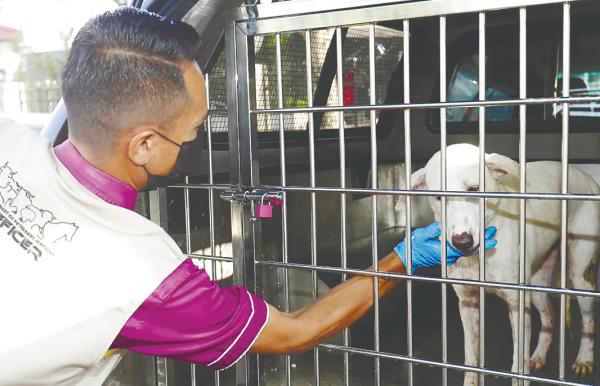PETALING JAYA: Paws Animal Welfare Society public relations officer Jonathan Yeoh said despite higher fines and jail terms, animal cruelty continues alarmingly in Malaysia.
Malaysia passed the revised Animal Welfare Act in 2015 following calls from animal protection groups for stronger animal welfare legislation.
The Act increased the penalty for cruelty from a maximum fine of RM200 and/or up to six months’ jail to a fine of between RM20,000 and RM100,000 and/or up to three years’ jail.
Section 30 states that no animal may be killed by use of a firearm unless authorised by a veterinary authority in an emergency or for disease control.
Former Agriculture and Agro-Based Industry minister Datuk Seri Ismail Sabri Yaakob said dogs are listed among animals that may not be shot by local authorities and those who do so could be fined up to RM100,000.
However, local councils in many states have flouted the law and killed stray animals, especially dogs, by shooting them.
In one case on Nov 4, 2021 in Kampar, Perak, animal rights group Persatuan Pencinta Haiwan Jalanan Kampar reported receiving messages from feeders and concerned individuals that there was a spate of dog shootings by the Kampar District Council over two weeks.
In a 2023 incident, a teenager was caught on camera hitting a stray dog and setting it on fire. Despite the severity of the act, he received a one year good behaviour bond and was granted bail of RM10,000.
“Our enforcement of animal welfare laws is feeble. We must ensure cases are prosecuted and offenders do not get off lightly,” said Yeoh.
Last week, the Veterinary Services Department reported that it received 2,612 complaints between January and June, with Selangor recording the highest number at 3,334, followed by Kuala Lumpur at 1,113 and Johor at 800.
The department said most abuse cases involved dogs, with 5,226, followed by cats with 1,900, horses with 178, rabbits with 157, birds with 122 and cows with 105.
Yeoh said although the number of cases is concerning, there has been an increase in public awareness regarding animal abuse as individuals are more informed and likely to report such cases.
“Advancements in technology and the use of social media allow individuals to share information, including evidence of abuse. This does not mean animal abuse is more prevalent but rather that more people are willing to report it.”
He said acquiring a pet should not be a sudden decision influenced by cute pictures on social media and it is crucial to communicate this to ensure prospective owners are prepared for the commitment of caring for a pet.
Universiti Teknologi Malaysia psychology lecturer Prof Dr Siti Aisyah Panatik said common aspects observed in individuals who abuse animals include a history of having suffered child abuse.
“Psychopathy is another trait linked to animal abuse as the individuals often lack empathy, engage in manipulative behaviour and may derive enjoyment from inflicting pain on others.
“This enjoyment of suffering could extend to animals, which are often viewed as easy targets for cruel behaviour.”
She said mental health issues, such as depression and anxiety, influence the likelihood of someone committing animal abuse as they may neglect their pets because they lack the interest or capability to care for them.
“Those suffering from post-traumatic stress disorder may display aggressive behaviours as a response to trauma and this sometimes involves harming animals.”









